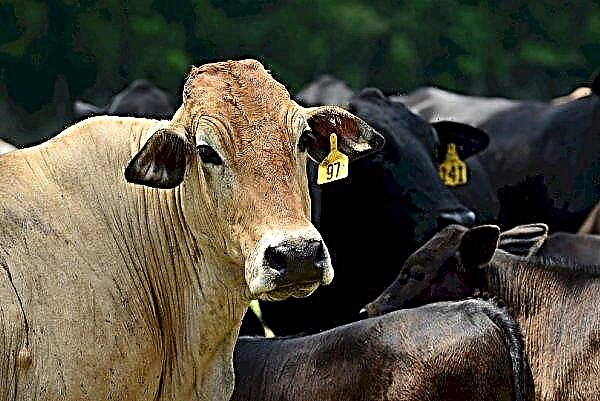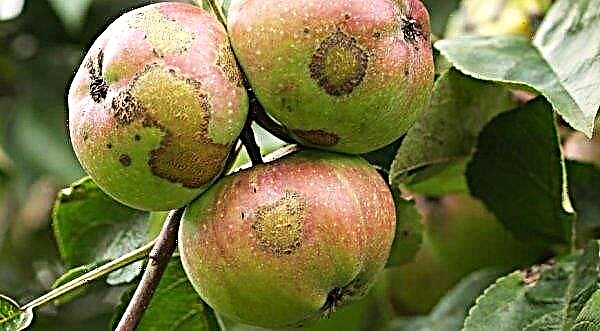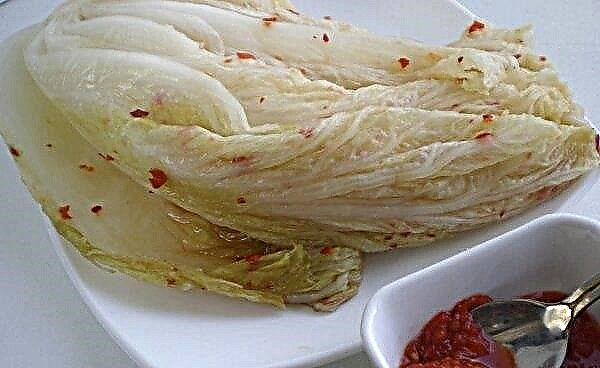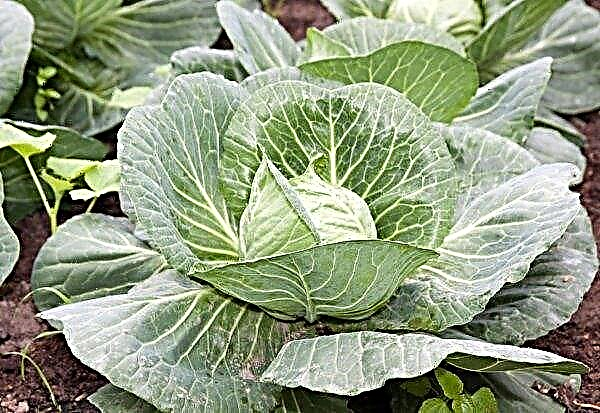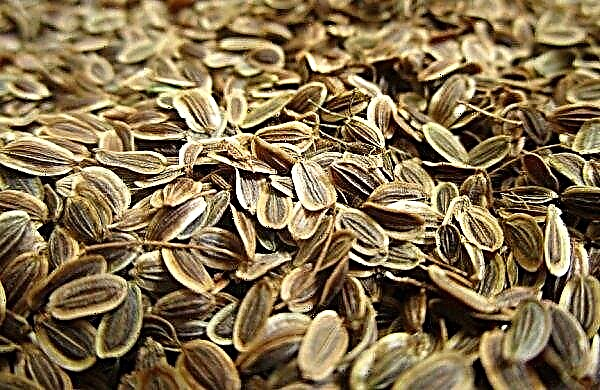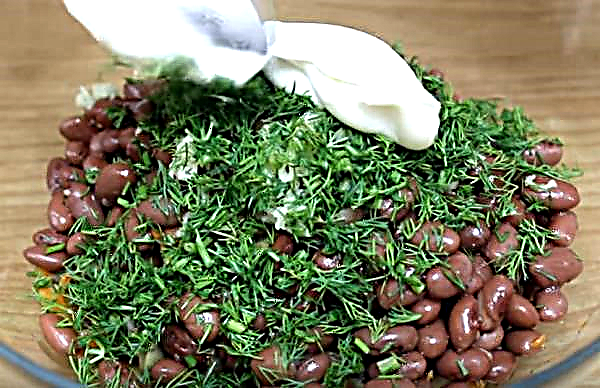It is always very important for expectant mothers to take care of their health and not succumb to diseases. To maintain good immunity, instead of various drugs, you can turn to folk healing plants, the beneficial properties of which are excellent to this day.
Chemical and Vitamin Composition of Pickled Ginger
After the ginger is pickled, many useful properties remain in it. In addition, a pleasant taste and aroma is added, and calories on the contrary go away.
- Useful substances that are stored in ginger:
- macro- and microelements (calcium, potassium, zinc, iron, sodium, magnesium, phosphorus);
- vitamins (A, B1, B2, B3, C, E, PP, K);
- proteins fats carbohydrates;
- interchangeable and irreplaceable amino acids (threonine, leysine, phenylalanine, etc.);
- fatty acids (linoleic, caprylic, oleic);
- a special substance - gingerol, which gives the product a spicy taste and anti-inflammatory property.
Did you know? Per 100 g of pickled ginger there are daily norms for a person of magnesium and iron, as well as a daily norm of phosphorus and calcium.
Is it possible to eat pickled ginger during pregnancy?
Generally, during pregnancy, it will be better to limit the use of various spices. But depending on the individual characteristics of each woman, doctors even recommend a pickled product.
It is used to alleviate the condition with severe toxicosis, during periods of insomnia or bad mood.
- As a natural healing agent, pickled ginger:
- supports the immune system, is well resistant to various bacteria and viruses;
- relieves joint and muscle pain, relieves swelling in the legs;
- eliminates a headache and has a good effect on the central nervous system;
- increases appetite and improves the digestive system;
- cleanses the body of excess sugar and cholesterol;
- increases stamina.
The product fully establishes the work of the whole body and improves the well-being of a person.
It is best for pregnant women to use it in its pickled form, because in a different state, the product has stronger properties, and this is already contraindicated.
In the early stages
The first trimester of pregnancy is most preferable for the use of the product. In the early stages, women often suffer from toxicosis and subsequent nausea, and it eliminates all this quickly enough.
Be sure to consult with a doctor before use, so that there are no complications.
In the 2nd trimester
In the second trimester of pregnancy, ginger can also be eaten, usually this enriches the body with various necessary trace elements. However, you should consult a doctor before use.
Even pickled eat it very carefully. If a large amount of pickled ginger enters the body of the future mother, then this entails a change in the hormonal background or premature production of milk, and this is a huge risk. Also, various digestive problems and allergies may develop.
Also, various digestive problems and allergies may develop.
In late terms
Late pregnancy - this means that you must categorically refuse the product in any form. The problems are: it dilutes the blood and can cause bleeding.
The closer the baby’s birth time, the worse it is perceived. The body is aimed at other processes and may be more weakened, therefore the product is contraindicated and may lead to premature birth or miscarriage.
Basic rules for use
Ginger is ground, dried and pickled. Most often it is consumed with tea and lemon, it eliminates nausea. Ground is used as a spice or concentrated food supplement and of course distributed in moderation.
Dried is used to satisfy hunger, it also prevents nausea. Thus, helping a woman not to lean on food too much.
Pickled ginger is consumed with food, often of Asian origin. It is also used well with fish dishes, and it is appreciated for its ability to remove the aftertaste from food.
Typically, the product after pickling turns pink - it can be either rice vinegar additives or beets. The store pickled product is often pink due to the dye E124, this additive does not affect the taste. It is used individually, depending on the human body. However, the norm is 50-100 g per day.
It is used individually, depending on the human body. However, the norm is 50-100 g per day.
Did you know? In dried form, ginger is also found in the traditional Russian dish - gingerbread cookies.
Contraindications and harm
The product has enough contraindications, and some people may have an allergic reaction.
- You can not eat ginger with:
- hypertension
- inflammation of the mucous membranes of the gastrointestinal tract, hemorrhoids, gastric ulcer, with digestive problems (diarrhea) - in this case, one harm is done, the product promotes and irritates intestinal disorders;
- skin diseases;
- addiction to allergies (in this case, it would be better to refuse the product and not risk it again);
- liver diseases (cirrhosis, hepatitis);
- tumors (there is a tendency to growth of formations);
- gallstone diseases.

Household storage rules
Pickled ginger can be stored in the freezer and in the refrigerator. It is placed in the freezer either in bags or in plastic food containers.
Important! It is not recommended to store ginger in a metal container, since this material has a bad effect on the product itself.
It is best to store pickled ginger in a tight glass container in the refrigerator. Such storage will ensure the preservation of both useful and taste for a period of more than one month.
Ginger is a rather controversial product, which many people still argue about. Pickled ginger can be useful during pregnancy, the most important thing is to use it correctly, calculate the dose and monitor your condition.

